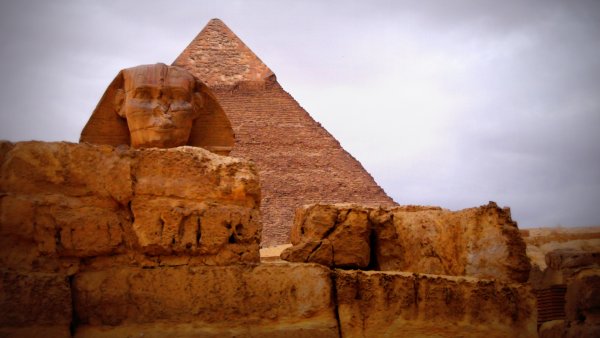 The debate about when a life becomes a life has been raging for a long time, and it's probably not going to be settled anytime soon. We're not here to talk about that, but we are here to talk about ancient Egyptian beliefs on the matter. Archaeologists are pretty sure they know exactly what those beliefs were because of a tiny sarcophagus originally removed from Giza in a 1907 excavation, according to The Telegraph.
The debate about when a life becomes a life has been raging for a long time, and it's probably not going to be settled anytime soon. We're not here to talk about that, but we are here to talk about ancient Egyptian beliefs on the matter. Archaeologists are pretty sure they know exactly what those beliefs were because of a tiny sarcophagus originally removed from Giza in a 1907 excavation, according to The Telegraph.
The little sarcophagus was intricately carved but in a severe state of decay, so archaeologists from the Fitzwilliam Museum only recently used imaging technology to peek inside. They assumed they were going to find embalmed organs from an adult, but instead, they found the carefully arranged remains of a miscarried child, somewhere between 16 and 18 weeks old. The little arms were crossed, and they say the coffin is a perfect miniature of other wooden coffins used between 664 and 525 B.C.
Julie Dawson of the Fitzwilliam Museum issued this statement: "This ground-breaking find educated us further still in our conception of just how precious the unborn child was in ancient Egyptian society. The care taken in the preparation of this burial clearly demonstrates the value placed on life even in the first weeks of its inception."
.gif)
Congratulations @habibullah! You have completed some achievement on Steemit and have been rewarded with new badge(s) :
Click on any badge to view your own Board of Honor on SteemitBoard.
For more information about SteemitBoard, click here
If you no longer want to receive notifications, reply to this comment with the word
STOPDownvoting a post can decrease pending rewards and make it less visible. Common reasons:
Submit